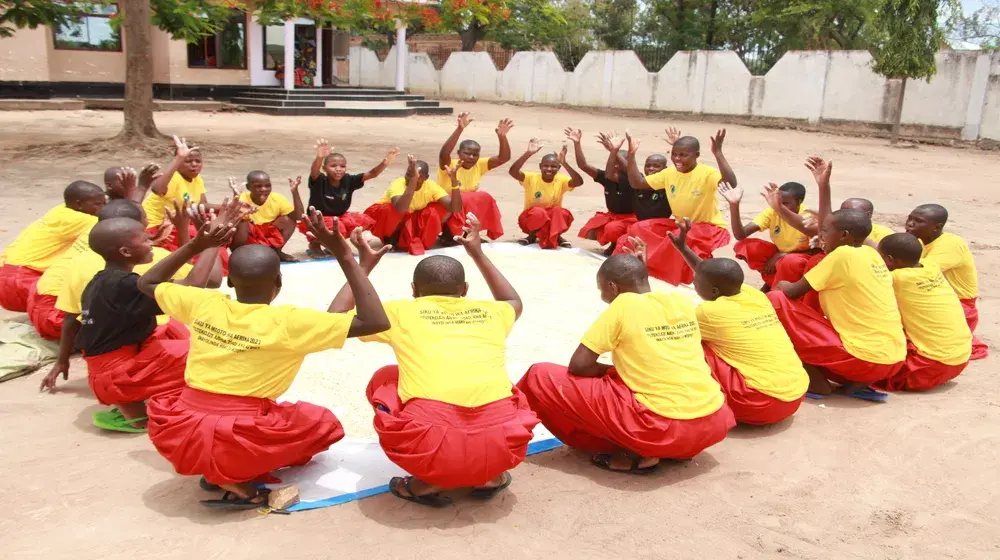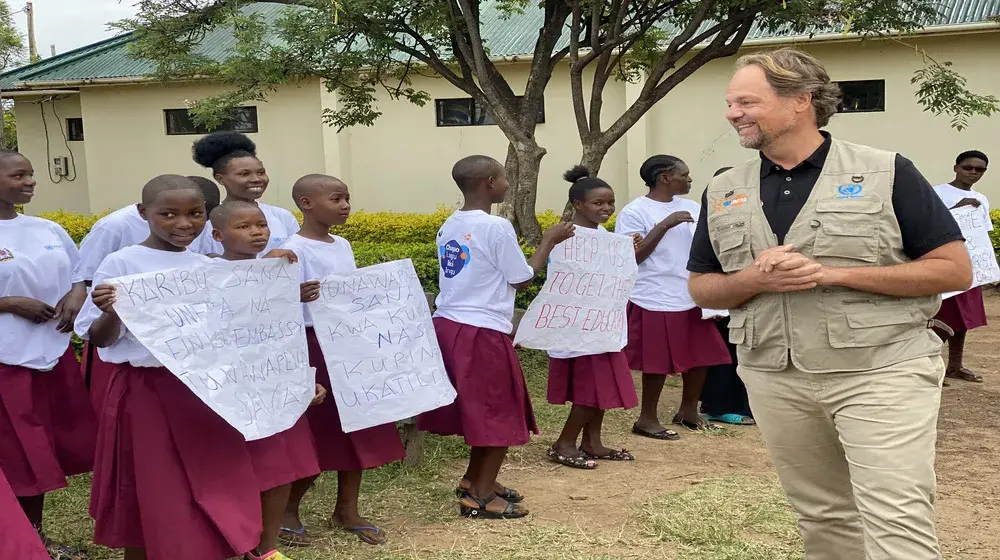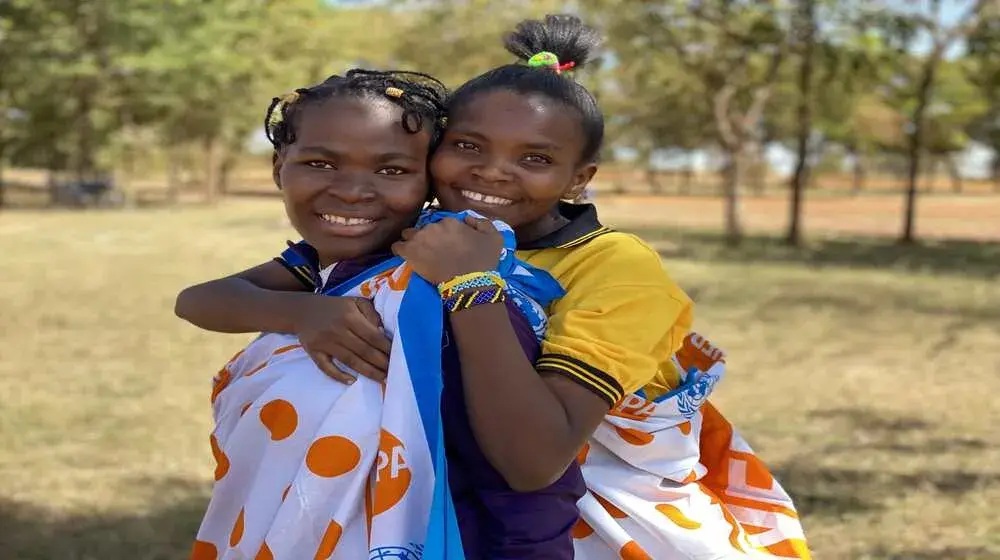His Excellency Roeland van de Geer, Head of Delegation of the European Union to Tanzania and the East African Community
Her Excellency Sarah Cooke, British High Commission
His Excellency Ian Myles, High Commission of Canada
His Excellency Paul Sherlock, Embassy of Ireland
His Excellency Jeroen Veheul, Embassy of the Netherlands
Ms. Grace Mwangwa, Assistant Director, Family Unit, Ministry of Health, Community Development, Gender, Elderly and Children
Inspector Mr Mcheu, Ministry of Home Affairs
Mr Alvaro Rodriguez, UN Resident Coordinator and UN Colleagues
Rhobi Samwely, Director of the NGO Hope for Women and Girls, Serengeti
Giselle Portenier, Director of “In the Name of Your Daughter”
EU-UNFPA Young Influencers Engaged in Ending FGM, among them here tonight Sammy Awami of the BBC.
Civil society organizations and media houses, present here today
Ladies and gentlemen,
It is estimated that one in ten women living in Tanzania today has undergone female genital mutilation (FGM) and as the population of Tanzania is young, more young girls are at risk of FGM today than ever before.
As the film “In the Name of Your Daughter” reminds us, behind every statistic is a young girl living in fear of her life; a young girl who is fleeing from being mutilated; a young girl who fears rejection from her family and community if she does not undergo female genital mutilation. No young girl or young woman should ever have to live in such fear.
Female genital mutilation has been criminalized in Tanzania since 1998 yet it still continues. We have seen decreases in the practice over the last decade, but progress has been uneven across regions, and this life-threatening practice is still almost universal in many communities.
As the lead UN agency mandated to provide support to end this practice, UNFPA is currently upscaling its work based on lessons learnt and the need to work collaboratively across different sectors of society. We will continue to support the Ministry of Health, Community Development, Gender, Elderly and Children to activate the National FGM Task Force and to ensure that Laws and Policies on FGM are implemented.
We will build on our work with the Tanzania Police Force, who are on the frontline of the FGM response. Gender and Children’s Desks have been set up across the country, and with strengthened data collection systems and increased knowledge, the Police are now better placed to detect and respond to cases of FGM. We’ve heard from Mr. Mcheu what more is needed to ensure that all regions with FGM are able to respond effectively. Our priority going forward is to increase the reach of Gender and Children’s Desks.
Local commitment must exist to address FGM and strategic partnerships must be formed and we will continue our work in communities, schools and with faith-based leaders.
UNFPA has supported the Masanga Centre to provide an alternative rites of passage for girls in Tarime District and engaged with FGM practitioners during the cutting season to increase their awareness about the harmful impacts of FGM on young women and girls.
Going forward, a major area of work will be working with Masanga, with Hope for Women and Girls, as well as other NGOs that are located in the community they serve, to create standard packages that other NGOs can adapt to their own contexts. Ones that offer high quality life skills education, that talk about other ways that adolescent girls can protect themselves, such as emergency contraception, to ensure young women have control over their reproductive health and rights.
We will ensure that the agenda to end FGM remains visible. UNFPA and the Tanzania Media Women’s Association have developed a training manual for journalists on gender-based violence including FGM, and trained journalists across the country to report on and to conduct investigative journalism about FGM. This has greatly strengthened the evidence-base on FGM, including revealing new forms of FGM in some regions. Going forward increasing the visibility of FGM through the traditional media and social media is an area where we are delighted to be collaborating with the EU. SMS technology will also be used for integrated service referral.
FGM prevention and care must be integrated into reproductive health services in an environment where FGM is going underground and where girls under the age of one are increasingly the most affected group. Midwives are an existing resource who are well placed to share FGM prevention messages.
In September, UNFPA will be taking some of the champions fighting to end FGM in Tanzania to the 73rd United Nations General Assembly and placing the need to accelerate efforts to end FGM on the international agenda. The event will mobilize political support to eliminate FGM by 2030 and UNFPA and its FGM champions will advocate for more resources to be invested in programmes and policies to end FGM.
FGM can and will be eliminated but we must all work together so that every young girl across the country hears the message that they don’t need to undergo FGM to be accepted as a person. We must work together to challenge traditions and cultural beliefs that drive this practice, and work with all sectors of society to ensure that no other girl becomes an FGM statistic. Let us commit to intensify action against this brutal human rights violation for the sake of all affected girls and young women, and for the community at large for a better country where girls’ rights are respected.
I’d like to end by acknowledging the collaborative efforts that made this evening possible. Thank you to our co-organizers the European Union, the High Commission of Canada, the Embassy of Ireland, the Embassy of the Netherlands and the British High Commission. Thank you TAMWA for supporting the media engagement.
Together we strive for a country where women and girls are empowered and able to make informed choices about their lives, a country where women and girls are free from FGM. Once the practice of FGM is ended in Tanzania, evidence from around the world suggests that it will never return. It will be a victory for the women and girls of Tanzania to keep. The battle is on to end FGM in Tanzania; the battle is on to change hearts and minds; the battle is on to uphold human rights.




